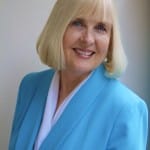
Bernice Ross
What does it take to market a $20 million property? How would you market a $135 million listing? These questions were posed to panelists at the Inman Luxury Connect conference in Miami in 2007 and are as apropos today as they were then. Not surprisingly, what it takes to market to the wealthiest buyers in the world works at most other price points as well.
At that conference, I was introduced to Jurgin Klaric’s and Clotaire Rapaille’s work on culture codes and how they vary from country to country. Understanding these codes is critical if you want to successfully represent luxury clientele.
“Forget about location. Marketing to the ultra-wealthy is all about niche marketing and appealing to the factors that anchor luxury in the buyer’s country,” Klaric said.
Rapaille, a marketing consultant to numerous Fortune 100 companies, also emphasized the importance of being “on code” when you work with buyers and sellers. His book “The Culture Code” spoke about the power of code in American marketing.
Buyers have a “reptilian” brain that regulates the buying process; it focuses on creature comforts over logical thinking, he said. And “the reptilian always wins.” In other words, the brain’s desire for food, comfort and other primal triggers outweighs logic.
This same pattern also applies to real estate. The logical part of your brain may tell you that a particular property is in a bad location, it has street noise and it’s going to take a considerable amount of money to repair.
But you write the offer anyway because you get the feeling that “there’s something about this house that I love.”
Thus, to successfully market to the luxury buyer, or to any buyer for that matter, you must be on code.
Luxury Codes
What are the codes for luxury? Rapaille’s clients spend $200,000 per day to consult with him about this issue. He said that there were a few of the key anchors for the ultra-wealthy.
One code that American society places a high value on is safety. For the ultra-wealthy, safety is often an obsession. While they’re concerned about protecting their assets, an even greater concern is the safety of their families. Many ultra-wealthy clients refuse to list their properties on the Multiple Listing Service (MLS), to have virtual tours or videos that display the art in their homes, or to allow unvetted buyers to view their property.
Instead, these properties are “discreetly marketed” by select agents who have the right contacts, the in-depth experience to shepherd the transaction from listing to close, and who never violate their client’s privacy or discuss their transaction.
Ultra-wealthy clients also see the value in being bigger and more dominant, in life and in real estate. Rapaille mentioned that the reptilian brain wants to feel dominant. Consequently, the ultra-luxury buyer normally wants the house on the hill or a property that says, “I’m the biggest and I’m the best.”
In order to snag an ultra-wealthy client, staging must appeal to all five senses. A customer’s decision to purchase almost any product is tied to all five senses. Most agents do an excellent job of staging properties visually, but Rapaille’s work said the way to the reptilian brain is through smell and taste. The aroma of fresh-baked cinnamon rolls is virtually irresistible, as is the clarion call of chocolate or a cold drink on a sweltering summer day.
The reptilian brain also loves to bask in the sun. It’s important that the master bedroom is staged as a retreat from the stresses of the day. This means plenty of pillows, an open book with a coffee cup or a wine glass on a night stand, lots of fluffy towels and bath products that create a spa-like atmosphere.
When showing an estate, find out what the buyers’ favorite type of music is prior to the showing and have that music playing in every room. Make sure the temperature is comfortable and if it’s cold, light a fire in the fireplace.
Another approach involves giving clients a true luxury experience. As one luxury agent put it, “Don’t talk about how luxurious it is. Let them experience it first-hand. Serve them caviar and champagne poolside and then seal the deal with chocolate.”
Additional triggers include fresh flowers on the table, white linen table cloths and live music playing in the background while dining.
Most of the codes for the ultra-wealthy and ultra-luxury clients are pretty much universal. Look forward to a second part of this series to discover the differences between U.S. and foreign luxury buying codes.
Bernice Ross, CEO of RealEstateCoach.com, is a national speaker, trainer and author. She may be reached at Bernice@RealEstateCoach.com.




 |
| 
